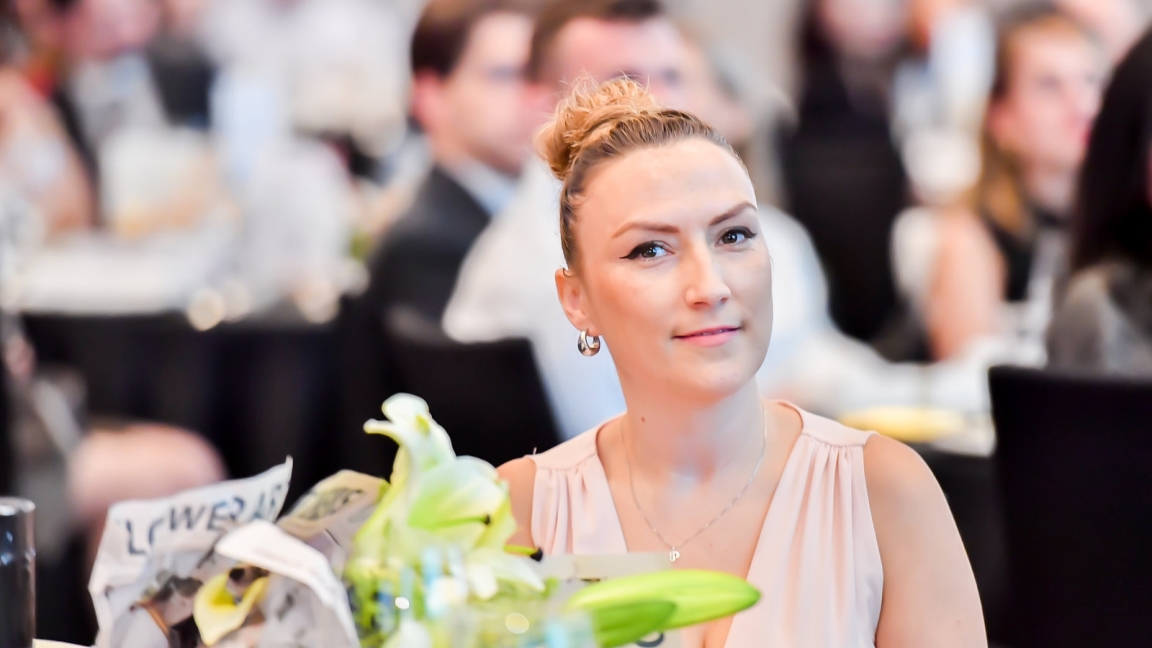
Transylvanian-born German entrepreneur Paula Mueller moved to Shanghai in 2012. She abandoned corporate stability in 2015 to pursue her goal after arriving to start an automotive business. That leap was difficult and tested her resilience, but it also led to tremendous growth. Paula developed EQwind Emotional Intelligence Institute to teach Chinese youth emotional intelligence, leadership and flexibility after years of rebuilding and leading European businesses.
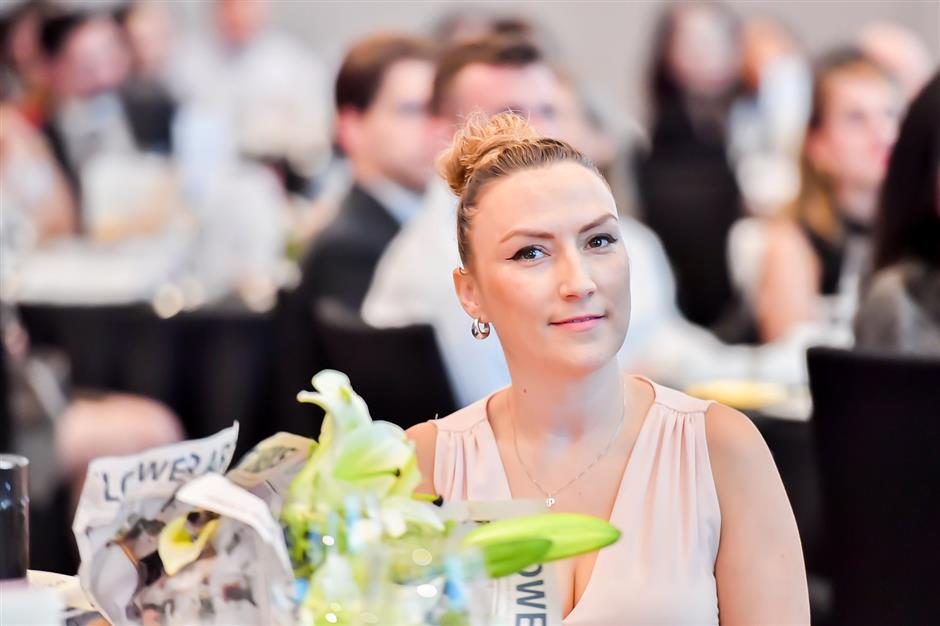
Paula at the IPWS Award Ceremony in 2022.
Q: Before we delve into your company, could you please share a bit about yourself?
I'm Paula Mueller, a Transylvanian-born, naturalized German who's called Shanghai home since 2012. Originally, I came here to set up an automotive company focusing on color standards. After leaving my job as GM in 2015, I made a bold decision to invest all my life savings into launching my own business, driven by ambitious aspirations.
It wasn't easy. Within the first year, I lost everything – my energy, my sense of self, my money, and even some valuable friendships. It was a tough blow, but I've never been one to stay down for long. I took the necessary time to heal, and eventually, I returned to the game. I joined the European Union Chamber of Commerce and led their membership department for over three years.
Though it was a great experience, deep down, I knew I was an entrepreneur at heart, and it was only a matter of time before I would venture out again. And here I am, doing just that – building my business with a stronger sense of purpose, a more profound understanding of what matters, and a clearer vision of the future.
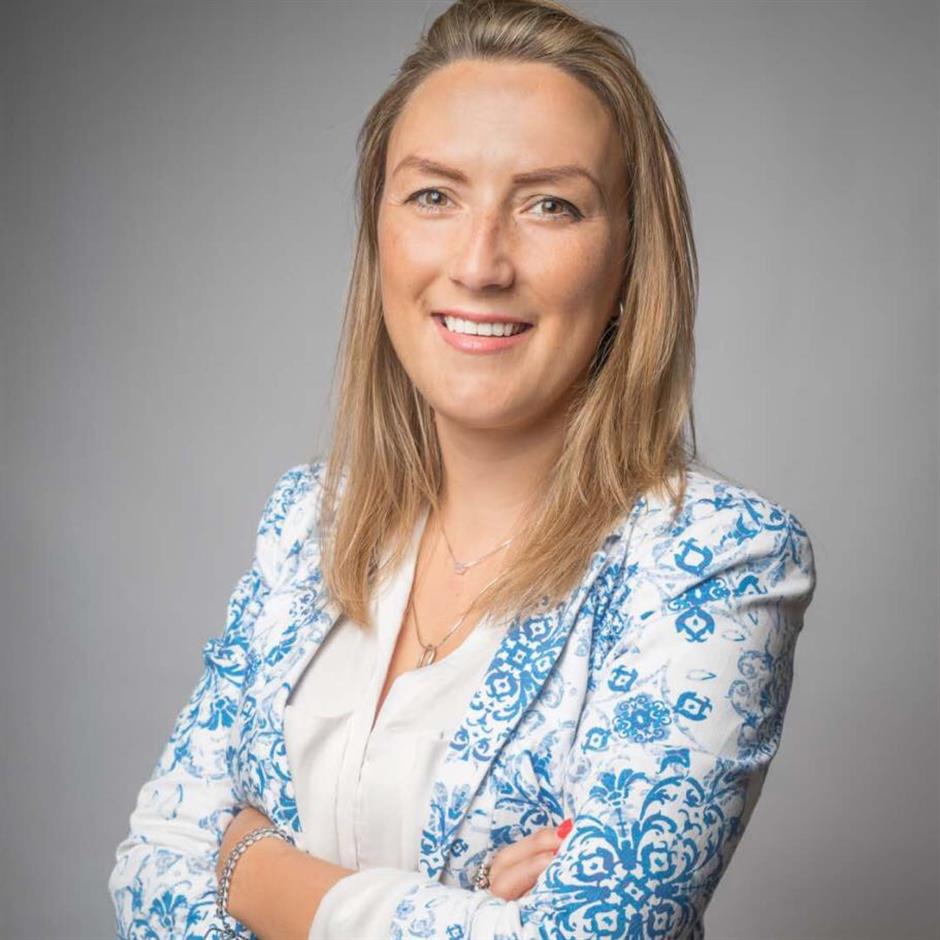
German entrepreneur Paula Mueller has been in Shanghai since 2012.
Q: Why did you decide to strike out on your own in Shanghai?
After a few years in Shanghai, I had a lightbulb moment: The youth here are studying harder than ever, but are they learning the skills they'll need 10 years from now? The answer hit me fast. Schools and universities were hyper-focused on test scores, while the world was speeding ahead with emotional intelligence, global collaboration, AI and the need for creatively solving problems. Meanwhile, students were burning out – overloaded, stressed and missing out on the essentials: leadership, creativity, confidence and resilience. Shanghai was my wake-up call. This city doesn't just keep up with change; it creates it. And yet, education was stuck in the past. I knew someone had to bridge that gap.
So I asked myself, why not me? That's when I walked away from comfort zone once again and built something bolder, a company that doesn't just teach youth what to think but how to think. A space where they grow into emotionally intelligent, future-ready leaders who can thrive in a world that values adaptability more than memorization. EQwind Emotional Intelligence Institute was born to focus on developing and delivering high-impact equational programs in various organizations. Our science-based programs combine emotional intelligence elements with practical leadership knowledge. We are dedicated to improving the well-being of the young generations in China and have made it our mission to help develop future cohorts of global leaders that possess competitive qualities required to achieve a successful career and strong global awareness.
Was it risky? Absolutely. But Shanghai taught me this: The biggest risk is not betting on the future, especially when the future is sitting in classrooms right now.
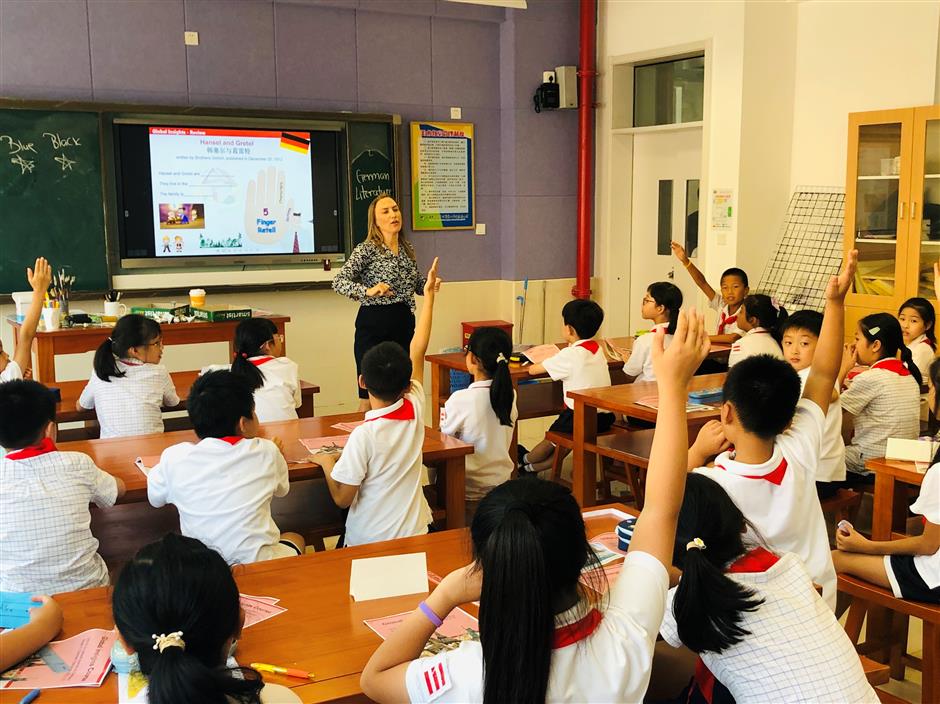
Paula takes an Interactive EQ class at the Tianyuan Primary School in Shanghai.
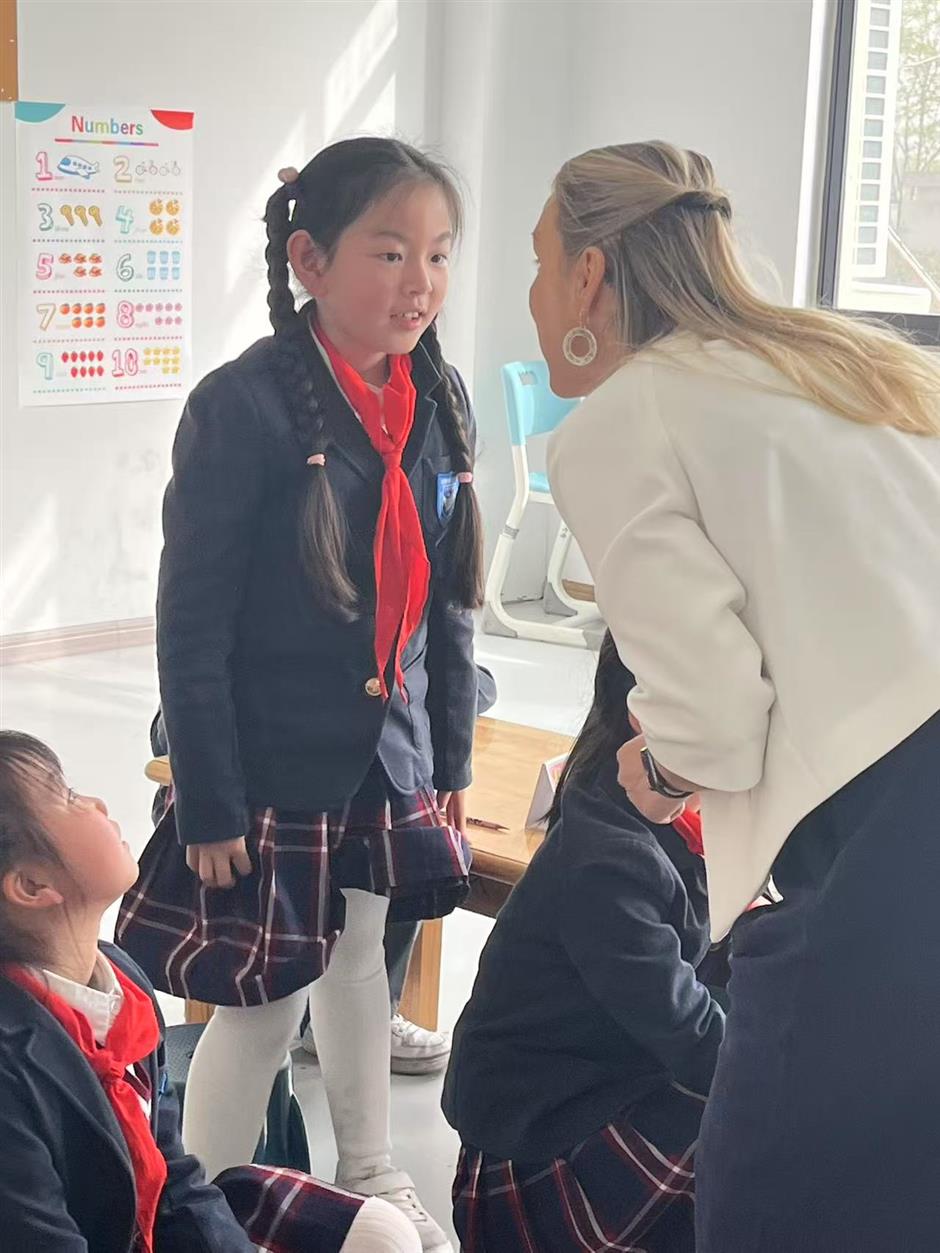
Paula interacts with local students during an EQ class.
Q: What makes Shanghai's business environment so remarkable?
It's the pace. The energy. The mindset. Shanghai runs on possibility. You can feel it – this unspoken agreement that anything is possible if you're bold enough to try. It's a city where innovation isn't just encouraged; it's expected. And if you have an idea, you may already be behind, as someone else is likely to present it tomorrow.
But what sets Shanghai apart is its fusion of East and West. You've got ancient philosophy colliding with cutting-edge tech, local traditions blending with global ambition. It forces you to think bigger, move faster and adapt constantly. There's no time for perfection, just progress.
For entrepreneurs, it's like a pressure cooker of growth. You learn how to build, pivot, fail forward and stay resilient. The market is demanding, yes, but that's the magic. If you can thrive in Shanghai, you can thrive anywhere.
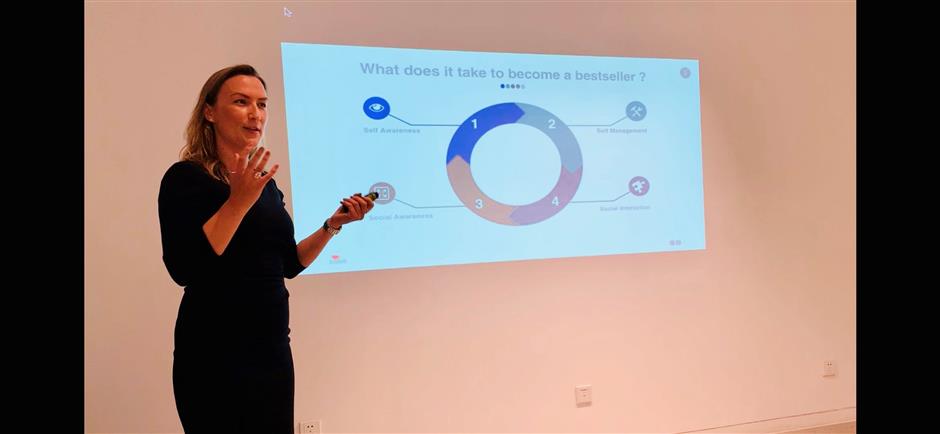
Paula gives a speech about the four pillars of EQ at Tongji University.
Q: What were you trying to bring to the local community?
I am advocating for a shift in mindset. I didn't set out to just build another education program; I wanted to build a movement. One that permits young students to be more than test-takers. I wanted to bring in the tools no one was talking about: emotional intelligence, leadership, purpose, communication, confidence and skills that shape success but rarely show up in a textbook.
In a school system that often emphasizes structure and direction, I wanted to create space for students to explore their why, to speak up, take initiative and grow through trial and error. My goal was to nurture confident, curious thinkers who aren't afraid to lead or make mistakes.
Beyond the classroom, I hoped to spark meaningful conversations at home – moments where students connect more deeply with their families, express themselves with clarity, and build stronger, more understanding relationships.

Paula joins her Grade 4 students at the award ceremony at Qibao Foreign Language School.
Q: What are the biggest challenges of setting up a business here? How do you stay motivated?
Starting anything in Shanghai takes grit. The pace is relentless, the expectations are high, and the competition is everywhere. You're constantly navigating language, culture, regulations and the fast-evolving market – all while trying to stay a few steps ahead.
But that's also what makes it exciting.
The biggest challenge? Staying true to your vision while staying flexible. Things change quickly here, and success means learning to adapt without losing your core. There were moments I felt overwhelmed, days when progress felt invisible, or when I questioned everything. But I've learned that resilience isn't just something I teach – it's something I live.
What keeps me going is knowing why I started. It's the positive feedback I hear from my trainers and principals and the impact in the eyes of my students when something clicks, when they stand a little taller, or speak with more confidence.
That's the fuel.
Q: What was the moment that made you most proud?
There are countless moments throughout the year that fill me with pride: Students stepping up to speak their minds, holding eye contact with quiet courage, respectfully challenging a different opinion, or confidently expressing their thoughts on a meaningful topic. These are the small, powerful shifts that show real growth.
And then, there's our final event – the moment everything comes together. Each year, we close the course with a celebration of voice and courage: Students share personal speeches or engage in classroom-style conversations on stage around complex, real-world topics. No scripts. No memorizing. Just their own words, their thoughts and their strength.
That's when I see it: the confidence, the clarity, the spark. That's when I know we're doing something that matters.
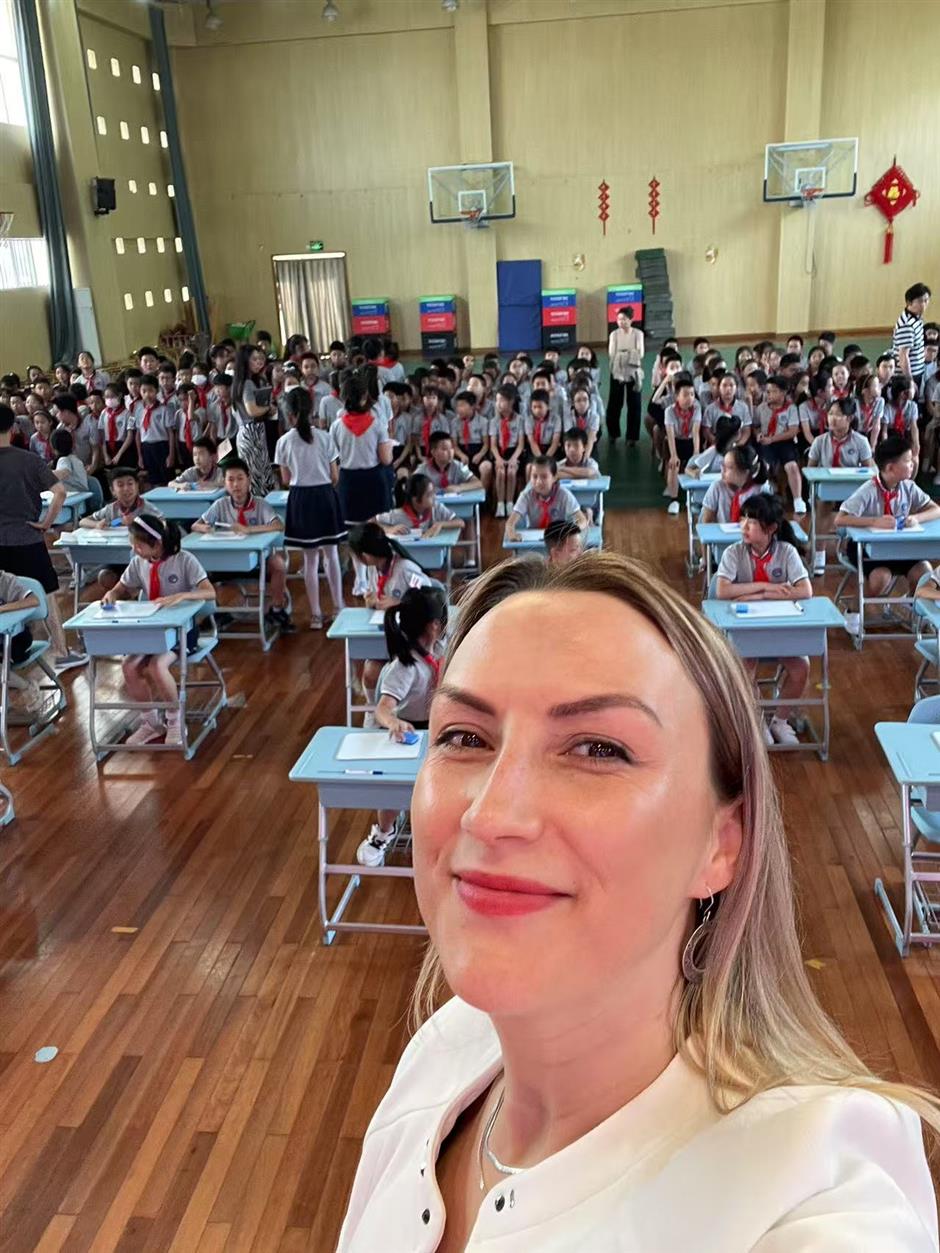
Paula at Qibao Foreign Language School
Q: What are you working on?
We're taking things to the next level. Together with my incredible partner Claire, we've developed and printed a series of books focused on crucial life skills, like global insights, emotional intelligence, leadership and resilience, that are designed to be both practical and impactful. These books are a game-changer for students, offering hands-on tools they can use in real-life situations. The next step is starting the process of copyright and preparing for their official launch.
But we're not stopping there. Using AI, we're also creating a series of special videos and interactive classroom content that work seamlessly alongside the books. This multimedia approach ensures that students don't just learn the concepts; they experience them in action. It's all about building an ecosystem of learning that's dynamic, engaging and transformative.
We're creating something truly unique – and we're excited to share it with the world.
Q: Who is the female role model who inspires you?
I have many role models that I like to call my "North Stars." Each of these stars constantly teaches me different skills required to succeed in this fast-paced world: my late mum, my grandma, Ana Terra, Claire and Angelina Jolie.
Q: Do you have any advice for women entrepreneurs?
My advice for women entrepreneurs is simple: trust your instincts, embrace your uniqueness, and don't strive for perfection; just start.
In a world that often tries to tell women to play it safe, don't be afraid to take risks, push boundaries and step into spaces that challenge you. You have a perspective and approach that is valuable and needed, so lean into that. Whether it's your leadership style, your creativity or your vision, own it.
Building a business can be tough, but remember that resilience is your superpower. There will be moments when you question everything, but the key is to stay focused on your "why." Surround yourself with a network of people who uplift you, challenge you and support your vision. And most importantly, don't let fear of failure stop you. If I could get back on the horse after losing everything, so can you! Every misstep is just another step closer to growth.

